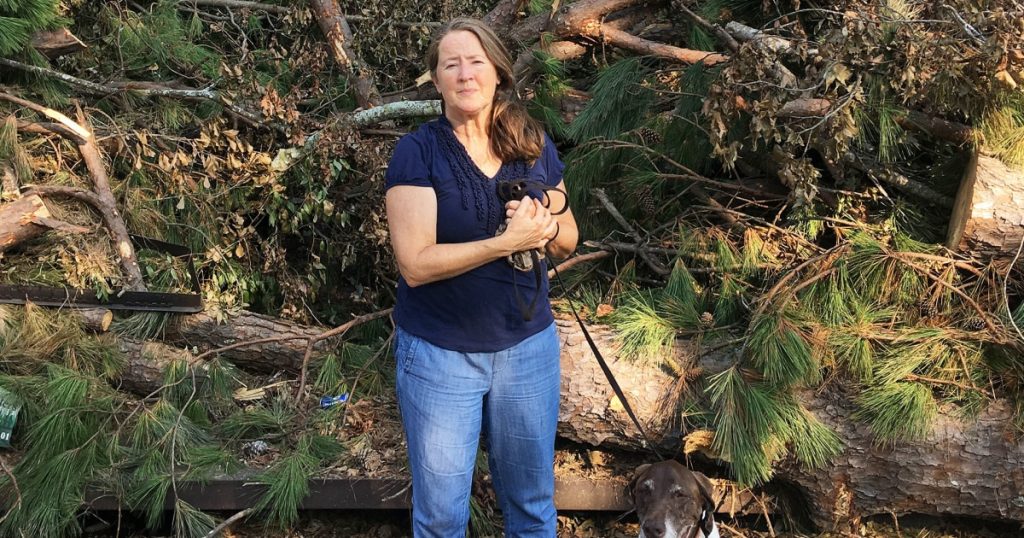Elizabeth Leadbetter, aged 59, woke up to the sounds of her dog, Cowboy, barking during the early hours of September 27 as Hurricane Helene battered her home in Augusta, Georgia. Leadbetter, who lives alone and is battling cancer for the fourth time, was still recovering from complications after undergoing a mastectomy when her home was seriously damaged by the storm. Now, Leadbetter is facing struggles both physically and financially as she tries to repair her home and recover from the aftermath of the hurricane. Her story sheds light on the unique risks that cancer patients and chronically ill individuals face during natural disasters, which can impact their access to care, living conditions, and overall wellbeing.
Research shows that cancer patients receiving treatment in areas affected by hurricane disasters tend to have shorter survival periods due to various factors such as lack of access to care, damage to their homes, and increased stress levels. Many healthcare facilities also shift their focus to treating injuries and acute illnesses rather than maintaining ongoing care for existing patients, adding to the challenges faced by those like Leadbetter. Her insurance company is overwhelmed with claims, leaving her to pay out of pocket for repairs she cannot afford at the moment, prompting a friend to set up a GoFundMe page to help her.
Leadbetter’s battle with cancer began in 2009 when she was diagnosed with Stage 3 breast cancer at the age of 42. Over the years, she discovered she had an autoimmune disease and two other types of cancer, undergoing treatments and surgeries to fight them. Despite being in remission for over a decade, Leadbetter received devastating news of the recurrence of her breast cancer last October. After a single mastectomy in June to remove one breast affected by cancer, Leadbetter faced complications that led to a difficult recovery, including acquiring a bacterial infection that left her bed-bound for weeks.
As Hurricane Helene approached her neighborhood in Augusta, Leadbetter anticipated heavy rain but was unprepared for the severe storm and subsequent damage it caused. Trees around her home collapsed, with some crashing into her bedroom and kitchen, leaving her home structurally unsound. Despite being weak and having limited use of one arm, Leadbetter had to clear debris and manage on her own as the power was out for over 10 days. She credits her community’s support for helping her navigate the challenges, although she is still struggling physically and emotionally in the aftermath of the storm.
As the community continues to recover from the impact of Hurricane Helene, Leadbetter’s concerns grow as Hurricane Milton approaches. She worries that more rain could further damage her tarp-covered home and is scrambling to find solutions amidst the ongoing challenges she faces. Plans for a second mastectomy have been put on hold as Leadbetter focuses on regaining her strength and stability after the storm. Taking things day by day, Leadbetter emphasizes the importance of enjoying a peaceful and simple life amidst the chaos and uncertainties that she currently faces.
As Leadbetter continues to navigate the physical and emotional toll of battling cancer and recovering from the aftermath of Hurricane Helene, she remains resilient and grateful for the support of her community. Her story highlights the struggles faced by individuals dealing with chronic illnesses during natural disasters and the importance of compassion, resilience, and community in overcoming challenges. Despite the setbacks and hurdles she faces, Leadbetter’s determination to rebuild and recover showcases her strength and courage in the face of adversity.


